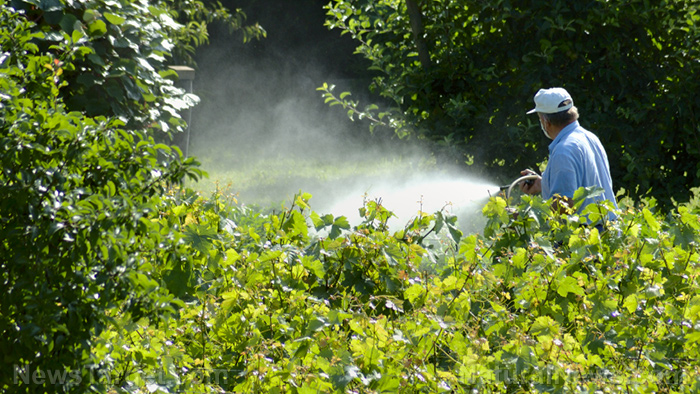Maine becomes first state to enact broad ban of toxic PFAS “forever chemicals”
07/21/2021 / By Cassie B.

Maine has become the first state in the nation to institute a broad ban of toxic compounds found in a wide variety of consumer goods.
The groundbreaking law bans manufacturers from using chemicals known as PFAS in all products by the year 2030, with exceptions only being made for instances where it is “currently unavoidable.”
PFAS, or poly- and perfluoroalkyl substances, are often used to give products stain- and water-resistant properties. They are used in products such as cosmetics, waterproof textiles, dental floss, stain protectors on carpets and furniture, guitar strings and cookware. These chemicals are also used in food packaging, particularly greaseproof wrapping. In addition, it can be found in firefighting foam, which the EPA reports is a major source of groundwater contamination at military bases and airports where firefighting training takes place.
They are known as “forever chemicals” because they never break down fully and accumulate within the human body as well as the environment. Numerous studies have linked these chemicals to serious health issues such as liver disease, kidney disease, endocrine disruption, lowered immunity, birth defects, high cholesterol, reduced sperm counts and other problems.
Although some states have passed laws that regulate the use of the chemicals to some degree, Maine is the first state to enact such a broad prohibition on the entire class of roughly 9,000 compounds.
PFAS are in our water, soil, bodies
One of the biggest problems with PFAS is the fact that they are so ubiquitous. They have been estimated to be in the blood of 97 percent of Americans and are said to contaminate the drinking water for more than 100 million individuals. The compound can be found all over the world in everything from marine animals and rain to women’s breast milk and polar bears up at the North Pole.

It’s been found in well water at levels that are 300 to 400 times higher than the ‘safe’ level established by the federal health advisory. State regulators found levels of PFAS that were more than 150 times higher than Maine’s milk standard on one dairy farm in the state that used contaminated sludge as a fertilizer.
The move comes after years of pressure from public health advocates as well as independent scientists who are concerned about how toxic these chemicals are, even at very low levels of exposure.
The bill’s sponsor, Democratic State House Representative Lori Gramlich, said: “PFAS is at a crisis level here in Maine—it’s in the soil, groundwater, and household items, and it is making people severely sick.”
Under the new law, manufacturers who intentionally add PFAS to their products for sale in Maine will be required to report their use to the state’s Department of Environmental Quality starting in 2023. This will allow the state to determine which uses can be considered currently unavoidable and can therefore remain in certain items, such as medical devices.
Meanwhile, the European Union is also moving ahead with plans to phase out the chemicals in all products by 2030 as well, although this is not yet a binding measure.
The national director of the public health advocacy group Safer States, Sarah Doll, said: “This policy sets a strong national precedent that sends a clear signal to industry that we need to move quickly toward safer chemistry and away from toxic chemicals like PFAS.”
Maine is setting a good example for the rest of the nation by putting a stop to the use of this very dangerous chemical. If other states follow suit and protect their citizens from poisonous PFAS, it could create enough pressure on the industry to stop using the chemicals altogether.
Sources for this article include:
TheGuardian.com
Tagged Under:





















